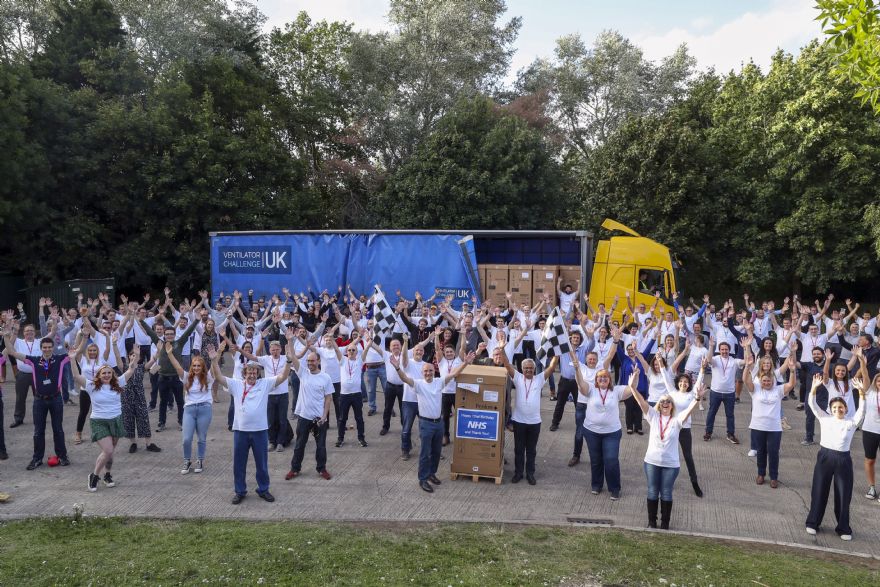
The work of VentilatorChallengeUK, the consortium of UK aerospace, motorsport, automotive and medical businesses has ended after more than doubling the stock of ventilators available to the NHS frontline in the battle against Covid-19 – manufacturing 13,437 in three months.
Formed on 19 March in response to the anticipated escalation of the pandemic, the consortium pulled out all the stops to deliver critical Penlon ESO 2 and Smiths paraPACTM plus ventilators to the NHS throughout the crisis.
In that time, it scaled-up the Penlon ESO2 emergency ventilator device which modified proven clinical equipment, and the Smiths paraPAC Plus — both met clinicians’ requirements as understanding of the virus progressed.
Dick Elsy, chairman of VentilatorChallengeUK and CEO of the High Value Manufacturing Catapult, said: “What VentilatorChallengeUK has achieved in the space of twelve weeks is nothing short of incredible, creating and producing an approved product and setting up production facilities on this scale would normally take years. I am immensely proud of the energy, determination and ingenuity shown by every business in responding to this national need.”
The consortium established, from scratch, seven new large-scale manufacturing facilities at Airbus AMRC Cymru in Broughton, Ford in Dagenham, GKN Aerospace in Luton and Cowes, McLaren in Woking, Rolls-Royce in Filton and STI in Hook, as well as restructuring existing sites Smiths Medical in Luton and Penlon in Abingdon.
Ventilator peak production exceeded 400 devices a day, with the shortest time taken to achieve 1,000 ventilators being three days. The consortium set up new parallel supply chains and acquired around 42 million parts and electronic components through a complex logistics network that saw DHL design and implement an end-to-end supply chain in only one and a half weeks.
Despite global competition for parts and lockdown challenges during the pandemic the team sourced part from over 22 countries, with the furthest distance travelled by a single part being 5,226 miles.
It also achieved full MHRA approval for the Penlon ESO 2 device in just three weeks, becoming the first newly adapted ventilator design to be given regulatory authorisation as part of the UK Government’s fight against Covid-19. It has just secured the international quality seal of approval by way of CE marking and can be exported world-wide.
The consortium also recruited and trained a 3,500 front-line assembly team in a new age of social distancing, balancing the twin imperatives of speedy delivery with absolute adherence to the regulatory standards needed to ensure patient safety.
VentilatorChallengeUK made its last shipment of finished ventilators yesterday (5 July) after which consortium businesses will return to regular production.
Mr Elsy added: “Together, we have helped ensure the NHS has always had access to the number of ventilators it needs, and we are pleased to have also contributed to building a resilient stock should ventilators be required in the UK in the future.”
He added: “This coalition of the very best of this country’s people and capability across different sectors has truly showcased the strength of the manufacturing industry in the UK.
“While we have now delivered all the required ventilators to the NHS, the consortium is looking to capture lessons learned and share them across the engineering community — and with Government — as key tools to help UK industry get back on its feet after the COVID19 pandemic has passed.”
Michael Gove, Chancellor of the Duchy of Lancaster, said: “The Ventilator Challenge has been a great success and I would like to thank every manufacturer and designer, and their incredible workforces, for the huge part they have played in the national effort to protect our NHS and save lives. In around three months, industry has stepped up to make 13,437 new machines to save lives on the NHS frontline and to help safeguard against any future outbreak.”